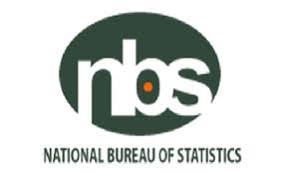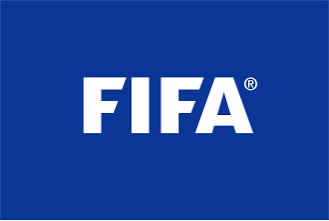
The National Bureau of Statistics (NBS) says Nigeria’s headline inflation rate eased further to 22.97 percent in May 2025.
The NBS disclosed this in its Consumer Price Index (CPI) and Inflation Report for May 2025, which was released in Abuja on Monday.
According to the report, the headline inflation showed a decrease of 0.74 percent compared to the 23.71 percent recorded in April 2025.
Furthermore, the report said on a month-on-month basis, the headline inflation rate in May 2025 was 1.53 percent, which was 0.33 percent lower than the rate recorded in April 2025 at 1.86 percent.
The report said the increase in the headline index for May 2025 was attributed to the increase in some items in the basket of goods and services at the divisional level.
It said the three major contributors to the headline inflation were Food and non-alcoholic Beverages at 9.20 percent, Restaurants, and Accommodation Services at 2.97 percent, and Transport at 2.45 percent.
The report showed the least contributors were Recreation, Sport, and Culture at 0.07 percent, Alcoholic Beverages, Tobacco, and Narcotics at 0.09 percent, and Insurance and Financial Services at 0.11 percent.
The report said the food inflation rate in May 2025 was 21.14 percent on a year-on-year basis.
It said on a month-on-month basis, the food inflation rate in May was 2.19 percent, which increased by 0.13 percent compared to the 2.06 percent recorded in April 2025.
The NBS said the increase in food inflation was attributed to the reduction in average prices of items such as Yam, Avenger (Ogbono/Apon), Cassava Tuber, Maize Flour, Fresh Pepper, Sweet Potatoes, etc.
The report said that “all items less farm produce and energy’’ or core inflation, which excludes the prices of volatile agricultural produce and energy, stood at 22.28 percent in May 2025 on a year-on-year basis.
“On a month-on-month basis, the Core Inflation rate was 1.10 percent in May, which decreased by 0.24 percentage points compared to the 1.34 percent recorded in April 2025 .”
The NBS said for the newly introduced sub-indices, on a month-on-month basis, Farm Produce and Goods stood at 22.38 percent and 9.39 percent compared to April 2025, which were 0.95 percent and 1.89 percent, respectively.
“Conversely, Services and Energy stood at 1.79 percent and -0.43 percent compared to 2.20 percent and 13.6 percent recorded in April, respectively.*
The report said that on a year-on-year basis in May 2025, the urban inflation rate was 23.14 percent.
“On a month-on-month basis, the urban inflation rate was 1.40 in May 2025, which increased by 0.22 percent compared to April at 1.18 percent.”
The report said in May, the rural inflation rate was 22.70 percent on a year-on-year basis.
“On a month-on-month basis, the rural inflation rate was 1.83 percent in May, which decreased by 1.72 percent compared to April at 3.56 percent.”
On states’ profile analysis, the report showed that in May, all item’s index inflation rate on a year-on-year basis was highest in Borno at 38.93 percent, followed by Niger at 34.97 percent and Plateau at 32.35 percent.
It said the slowest rise in headline inflation on a year-on-year basis was recorded in Katsina at 16.25 percent, followed by Adamawa at 18.20 percent and Delta at 18.41 percent.
The report, however, said in May 2025, the inflation rate on a month-on-month basis was highest in Bayelsa at 9.11 percent, followed by Bauchi at 4.85 percent and Borno at 4.42 percent.
“Kaduna at -6.75 percent, followed by Jigawa at -4.40 percent and Edo at -2.94 percent, recorded the slowest rise in month-on-month inflation.”
The report said on a year-on-year basis, food inflation was highest in Borno at 64.34 percent, followed by Bayelsa at 39.85 percent and Taraba at 38.58 percent.
“Katsina at 6.90 percent, followed by Rivers at 9.18 percent, Kwara at 11.31 pe percent, red the slowest rise in food inflation on a year-on-year basis.’’
The report, however, said on a month-on-month basis, food inflation was highest in Bayelsa at 12.68 percent, followed by Cross River at 11.15 percent and Anambra at 9.10 percent.
“Katsina at -5.42 percent, followed by Jigawa at -4.02 percent and Kaduna -at 3.27 percent, recorded the slowest rise in inflation on a month-on-month basis.”
The NBS said that based on the recent rebasing of the CPI, the CPI rose to 121.35 in May 2025, which reflected a 1.83-point increase from April 2025.
The NBS recently rebased the CPI, bringing the base year closer to the current period, from 2009 to 2024, with 2023 as the reference period for expenditure weights.
The Statistician-General of the Federation, Adeyemi Adeniran, said the rebasing was designed to ensure that Nigeria’s economic indicators accurately reflect the current structure of the economy.
According to him, this is done by incorporating new and emerging sectors, updating consumption baskets, and refining data collection methods.









